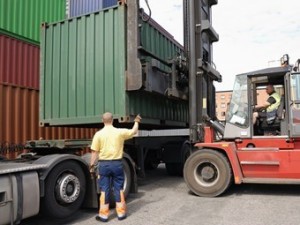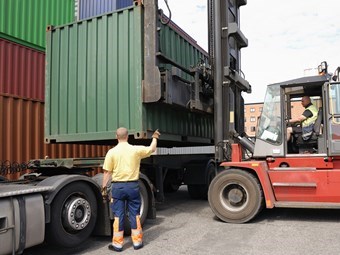WA Businesses Warned About Importance of Compliance Systems to Meet COR Obligations

Those loading freight can now be held responsible in Western Australia for breaches of vehicle mass, dimension or load restraint requirements. Image source: fullyloaded.com.au
The WA Transport Minister has warned the industry about the need to have compliance systems in place to meet Chain of Responsibility obligations or face possible prosecution and fines under new chain of responsibility legislation.
Anyone involved in freight loading can now be held responsible in Western Australia for Chain of Responsibility breaches relating to vehicle mass, dimension or load restraints.
Businesses in Western Australia that are bound by new chain of responsibility (COR) law have been told to get their compliance systems in order to ensure that they are meeting their obligations.
The state recently announced changes to COR legislation that would see all parties involved in transporting freight liable for loading, mass and dimension breaches.
All those in the transport and logistics sector have been urged by WA transport minister Dean Nalder about the need to ensure compliance to COR legislation.
The new law, which came into effect in April applies to light and heavy vehicles and carries penalties including prosecution and fines for breaches.
Companies are encouraged to review their existing procedures to ensure requirements are being met. Nalder stated:
“I encourage you to review existing procedures and identify areas that may need attention to prevent a breach of mass, dimension and load restraint requirements,”
Source: http://www.fullyloaded.com.au
Mr Nalder went on to label the law “ a milestone for road safety” stating that it made sure everyone was held responsible for safe freight transportation, from the company director to packers and receivers, whereas in the past the driver held most of the responsibility. He explained:
“In the past the onus has rested solely on the driver to secure the load,” Nalder says.
Source: http://www.fullyloaded.com.au
The new regime took effect in the state on April 27 in an attempt reduce the number of items falling from moving vehicles. Nalder explained that falling goods present a hazard to road users and damage roads.
Mr Nalder explained that the new regime would also make the industry fairer because it would stop those operating outside COR laws from gaining a competitive advantage on those who were abiding by the law. Companies that overload will be held accountable under the new laws.
Mr Nalder stated:
“When goods fall from a moving vehicle they can damage the road and create serious hazards for road users, so this reform should encourage more attention to securing loads,” he says.
“It should also create a more level playing field, making it difficult for those operating outside of the law to gain a competitive advantage through overloading.”
Source: http://www.fullyloaded.com.au
For more on how to ensure everyone within your company is aware of what is required of them click here today.



